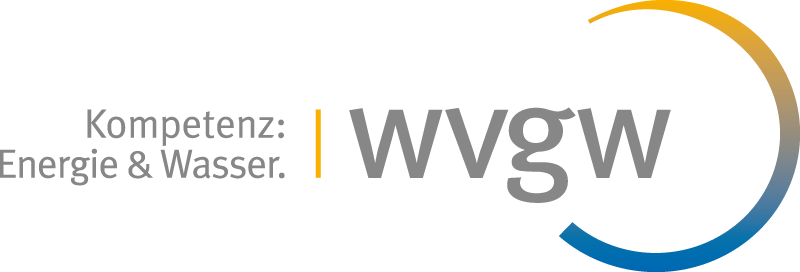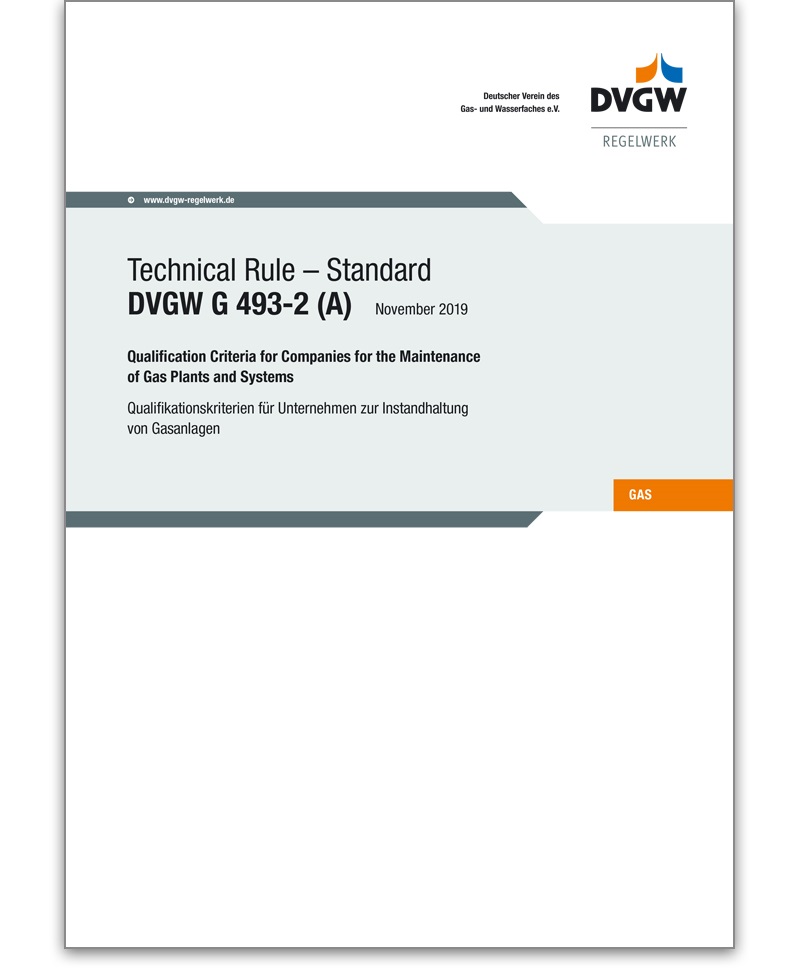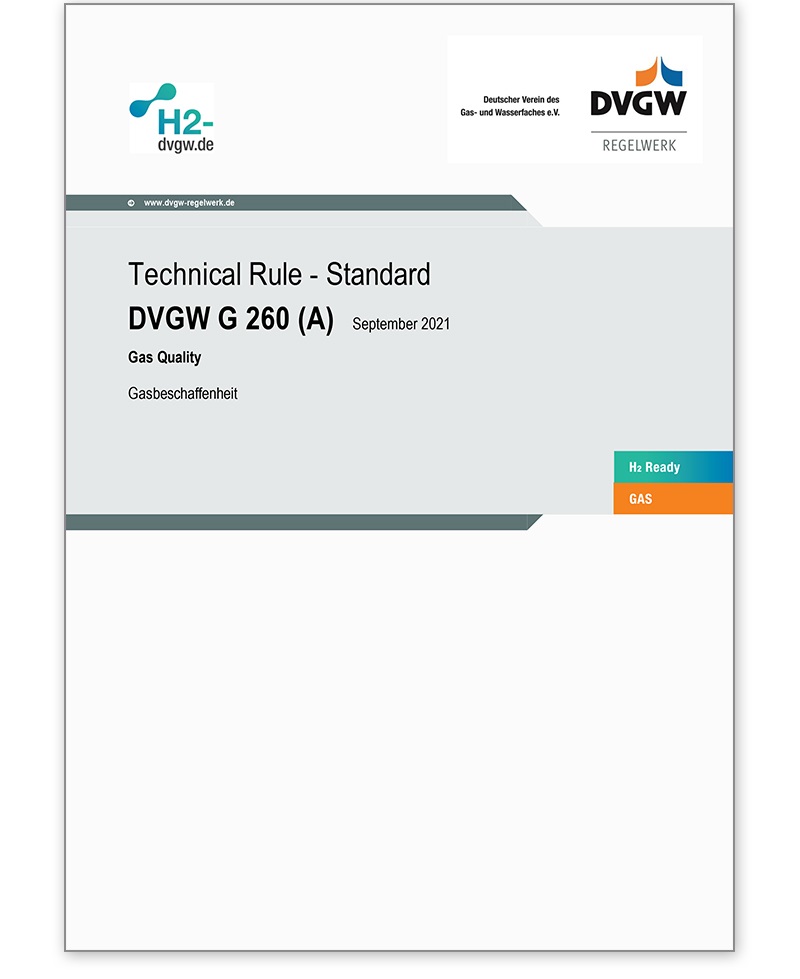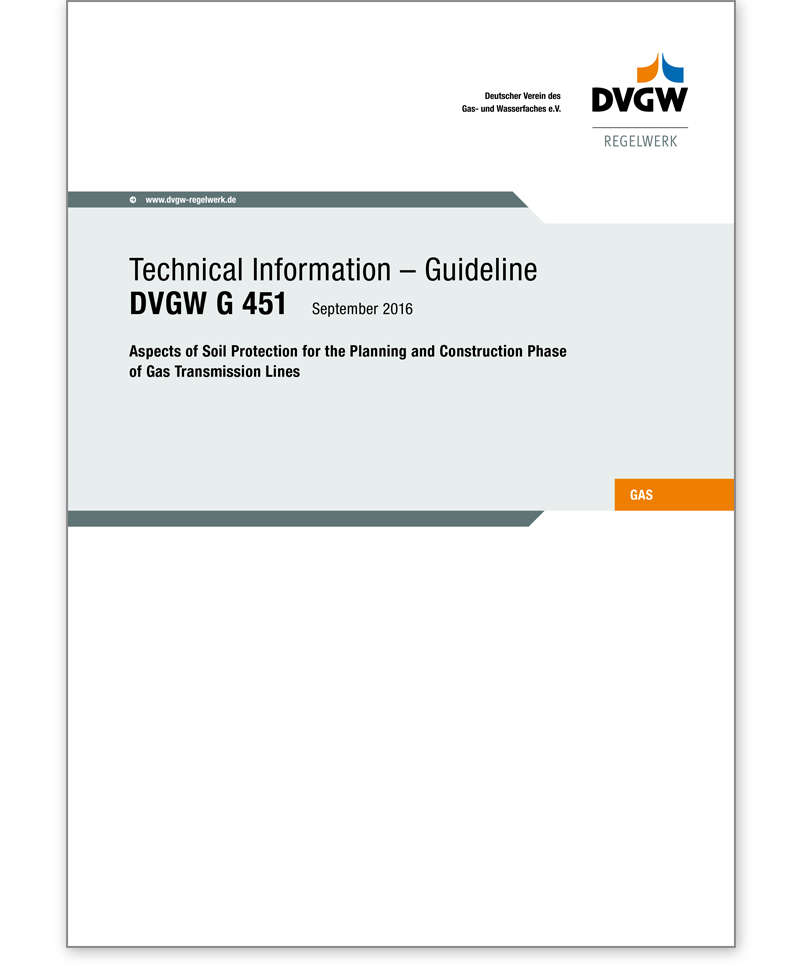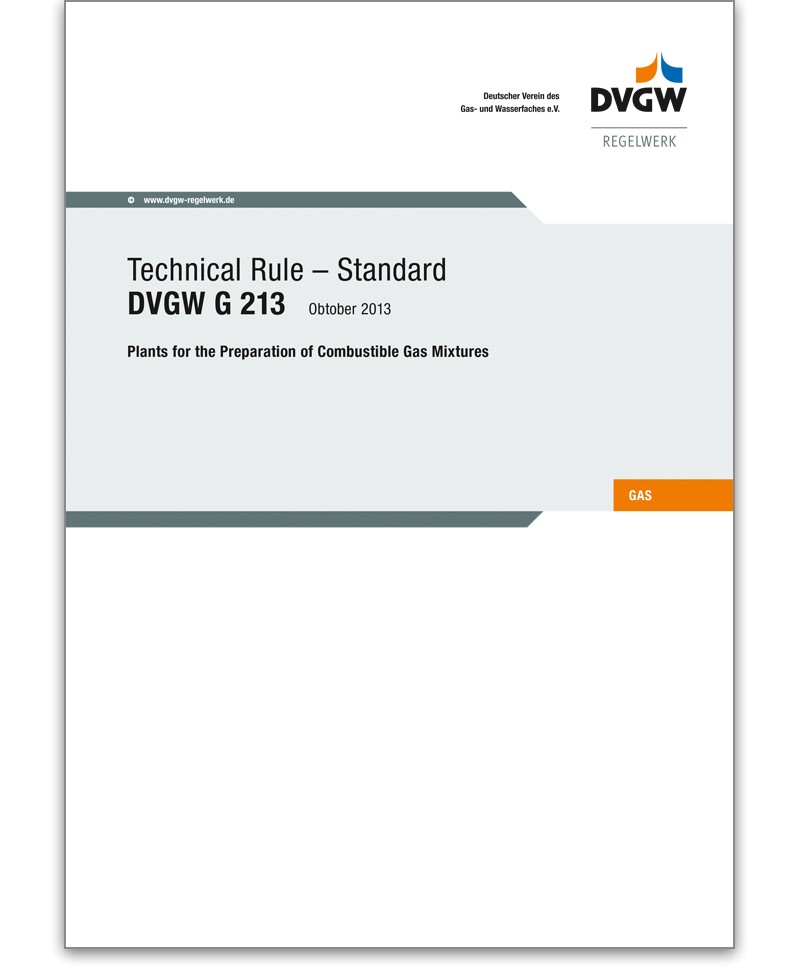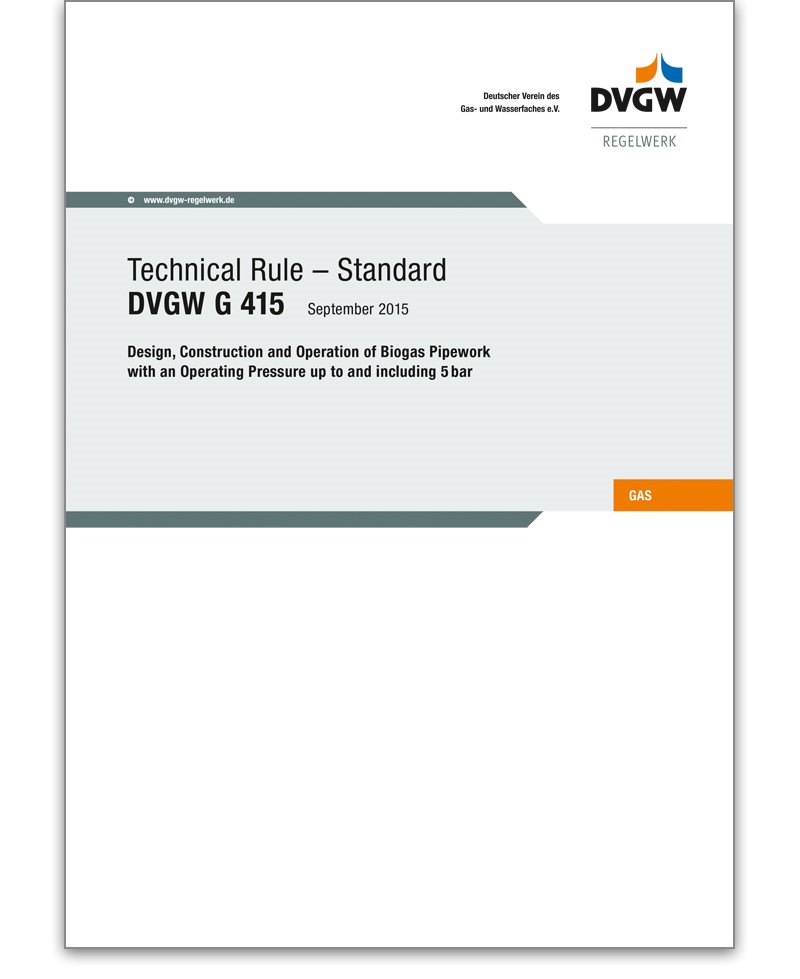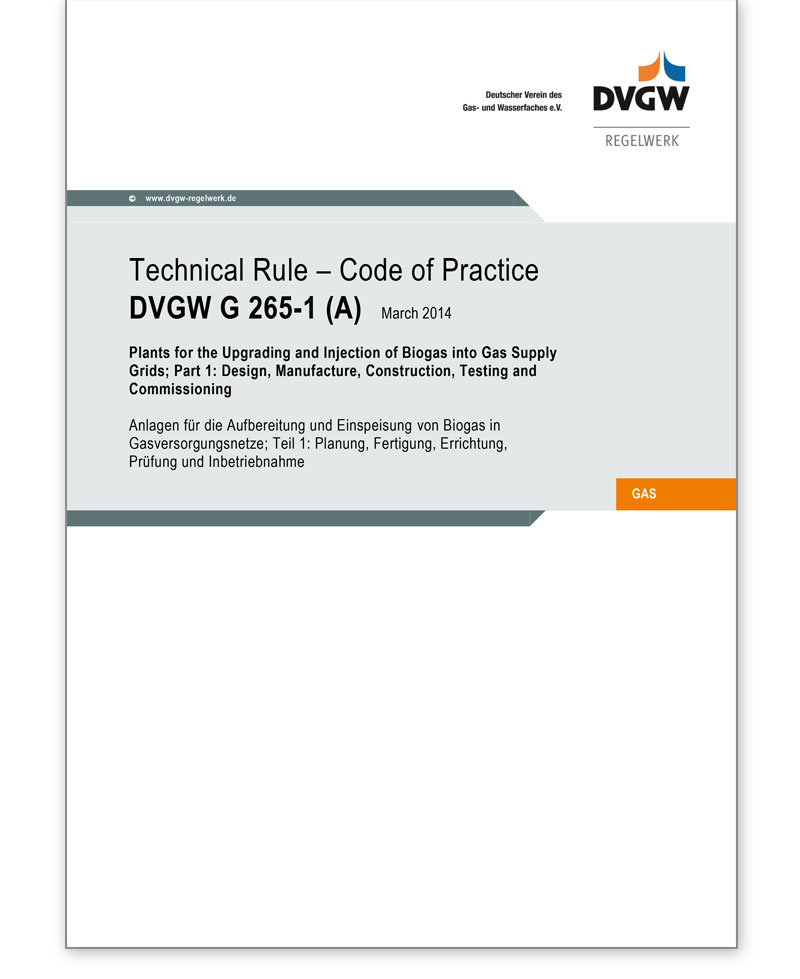Filter
–
Biogas
Biogas production, combined with the advantages of minimising methane losses and increasing energy efficiency, is an important task. The injection of appropriately upgraded biogas offers positive aspects in this respect:
Biogas also opens up an improvement in the efficiency factor for conventional natural gas, given the appropriate basis for calculation.
blending in the fuel sector enables the automotive industry, among others, to comply with strict regulations regarding CO2 fleet emissions.
G 493-2 Technical Rule - Standard 11/2019 -PDF-File-
62,03 €*
This standard G 493-2 encompasses personal and professional
requirements for companies providing maintenance for gas plants and
installations that fall within the scope of DVGW G 495 (A), as well as biogas
injection and refeeding plants as specified by DVGW G 265-2 or hydrogen
injection plants as specified by DVGW G 265-4 (M).Companies which, within the
context of comprehensive plant management, either as original operators or as
contractors, are responsible for the maintenance of energy plants, and possess
the required personal qualification and organization according to DVGW G 1000
(A), may conduct the maintenance of gas plants without certification as defined
by this standard within the network which they have the abovementioned
responsibility for. The prerequisite for the maintenance without certification
as mentioned above is that the expert and tech-nical conditions detailed in
this standard are met by the company’s own workforce or by service providers
with a TSM certification or other corresponding certifications. The company
shall appoint the experts re-sponsible for maintenance in writing. The
fulfilment of these conditions can be verified e.g. during a TSM review
according to DVGW G 1000 (A).
G 260 Technical Rule 09/2021
110,68 €*
This Technical Rule G 260 specifies the
requirements for the quality of fuel gases used
in the supply of the general public with gas and
sets the parameters for gas delivery, gas
transportation, gas distribution, gas storage,
operation of gas plants/systems and gas
appliances for commercial and industrial gas
applications as well as for development,
standardization, and testing.
Gases transported in separate pipelines which are
not used in the supply of the general public, or
are used as energy carrier or resource, and/or
are used in special gas appliances are not
subject to the scope of this Technical Rule.
G 451 Technical Information - Guideline 09/2016
62,03 €*
The regulations in this Guideline G 451 shall be observed when planning and constructing gas transmission pipelines in conjunction with statutory procedures such as regional planning procedures und planning permission hearings.
G 213 Technical Rule - Standard 10/2013
62,03 €*
This Standard shall also apply, mutatis mutandis, to gas mixing plants that supply process gas to trade and industry and to industrial gas mixing plants for in‑house mixed‑gas supply.Gas mixing plants are frequently integrated into gas measurement and pressure reduction stations, which latter shall meet the specifications of DVGW Standards G 491 and G 492. In other words, most of the requirements specified in these Standards will also apply to gas mixing plants. All other requirements that go beyond the scope of G 491 and G 492 are described in this Technical Rule at hand, which first and foremost complements DVGW Standard G 491.
G 415 Technical Rule - Standard 09/2015 -PDF file-
62,03 €*
This DVGW Standard can be used as a guideline as it summarises the minimum requirements specified in the DVGW Sets of Rules that shall be observed by design firms, specialist contractors, operators and the involved authorities during the design, construction and operation of gas pipework for the transmission of untreated or partially treated biogas. The clause on Design also draws attention to the fact that the pertinent approvals and / or permissions shall be obtained prior to the start of construction of pipework planned to cross e. g. water bodies, roads and railways.Gases produced by fermentation processes such as e. g. biogases obtained from agriculture that are generally used to meet internal requirements and / or to power decentralised systems such as e. g. combined heat and power plants, are untreated or partially treated biogases that are not considered gases in accordance with DVGW Standard G 260.Nonetheless, the documents that form part of the DVGW Set of Rules that are referred to in this Standard shall also be applied to pipelines that transmit untreated or partially treated biogas.
G 265-1 Code of Practice 03/2014
110,68 €*
This Code of Practice G 265‑1 serves as a basis for designing, manufacturing, constructing, testing and commissioning plants for upgrading biogas to natural gas quality, plants for injecting these gases into gas transmission and distribution systems, and plants for the refeeding of gas into the upstream gas supply network. This DVGW Code of Practice provides a summary overview of the minimum requirements on the technical safety of plants and components required for the utilisation of biogas, from upgrading plants through to compressor stations; pressure control here. The injection into the gas supply network as added or substitute gas. At the same time, one focus was on the indispensable coordination between the generally different plant operators.
